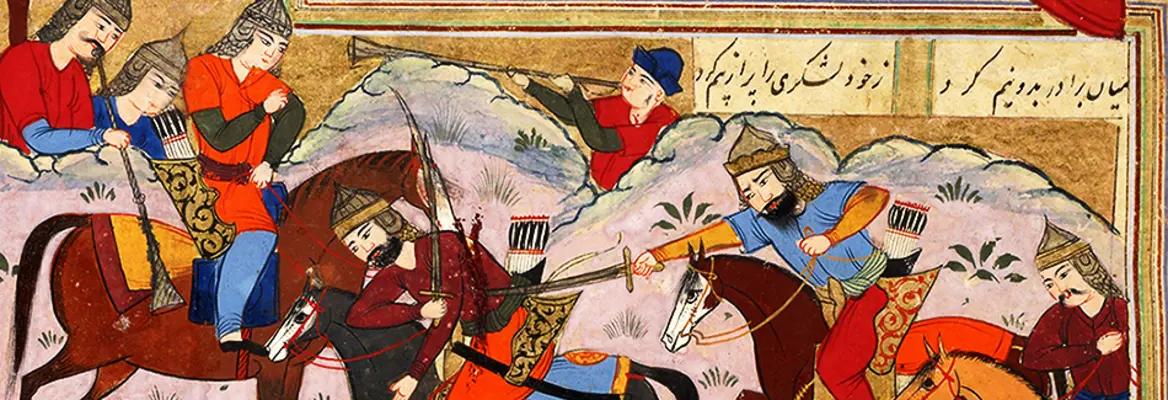The Middle East is ablaze with conflict. From Israel and Palestine, to Yemen and the recent collapse of the Syrian government, when there is crisis in the region fingers usually point in one direction. Towards Iran. But what is Iran's grand strategy? Vali Nasr, professor of International Affairs and Middle East Studies at Johns Hopkins and described as "a leading world authority on Shia Islam" by The Economist, argues Iran is best not thought of as a theocracy, but instead a security state. If the West is to pursue peace in the region, outside intervention is merely fuel for the revolutionary fire and true change can only come from within.
For over four decades, Iran’s policies have posed serious challenges to its neighbors and the West. The threat of Iran’s nuclear program and its far reach across the Middle East through a chain link of well-armed allies has grown in magnitude as the Islamic Revolution of 1979 has receded in the rear view mirror. Still, despite the gravity of this threat, there is scant understanding of Iran’s intentions, the assumptions, calculations and goals that drive its international statecraft. But what does Iran want and how does it seek to attain it?
___
It is not that theocracy needs war with the West, but that the war with the West needs theocracy.
___
Iran is a revisionary international actor. This is perhaps expected insofar as the Islamic Republic was born of a revolution and revolutions by nature challenge the established order. Iran’s international posture is also routinely blamed on the religious nature of its revolution and the theocracy that it has borne. This line of reasoning, however, obfuscates the true motivations that drive Iran today.
It is important to reiterate that Iran’s antagonism towards the West has increased as the memory of the revolution has receded. As the influence of ideology on state and society diminished, Iran has become more determined to resist the West, even as it has faced growing economic and strategic costs. In fact, it seems that the Iranian regime is using religious ideology to maintain its confrontational stance in the interests of statecraft, rather than being driven primarily by religious ideology. It is not that theocracy needs war with the West, but that the war with the West needs theocracy. Without ideology binding state and society, such a confrontation would not be possible. As such, behind the veneer of religious ideology, the Islamic Republic is today a national security state.
___
The language of statecraft is Islamic, but it is a deep sense of insecurity and rage at imperialism that shapes its agenda.
___
Close examination of ongoing debates in Iran suggests that the Islamic Republic’s conception of national security – how to defend Iran, the Islamic Republic and the revolution, understood as one totality – is deeply ingrained in the understanding of the country’s history as well as lessons learned in contending with external threats in more recent years. The language of statecraft is Islamic, but it is a deep sense of insecurity and rage at imperialism that shapes its agenda.
Iran’s revolutionary elite were inspired by Islamic ideology expounded by the revolution’s founder, Ayatollah Ruhollah Khomeini. That ideology drew deeply from Iran’s history of foreign interference and the Third-Worldist anti-colonial movements that were popular in developing countries in the 1960s and 1970s. The current Supreme Leader of Iran, Ayatollah Ali Khamenei is well-read in that literature, and his view of the West is reflective more of the discourse of the anticolonial theorist Franz Fanon than of Islamic theology.





















Join the conversation